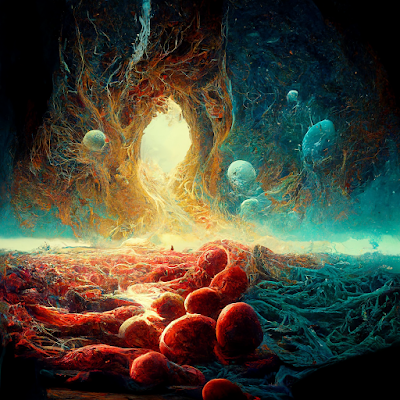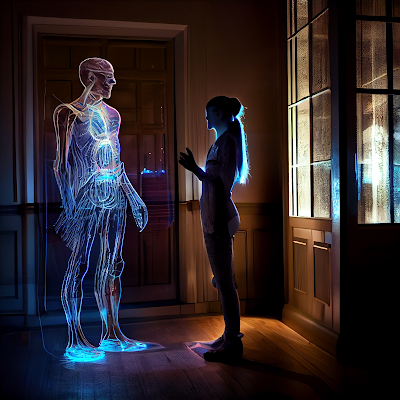The Origin of Life: How it Began
Introduction
The origin of life is one of the oldest and most fundamental questions in science and philosophy. Despite much progress in our understanding of the natural world, the question of how life began remains one of the greatest mysteries of science. In this blog post, we will explore the scientific theories of abiogenesis and panspermia for the origin of life and their respective strengths and weaknesses. We will also touch upon the philosophical implications of this question.
Abiogenesis: A Scientific Theory for the Origin of Life
Abiogenesis is one of the most widely accepted scientific theories for the origin of life. It suggests that life emerged spontaneously from non-living matter through a series of chemical reactions. The early Earth was home to a primordial soup of simple organic molecules, such as amino acids and nucleotides, which gradually came together to form more complex molecules, such as proteins and nucleic acids. Over time, these molecules organized themselves into self-replicating systems, eventually leading to the emergence of living cells.
The Miller-Urey Experiment and Supporting Evidence for Abiogenesis
One of the main lines of evidence for abiogenesis is the Miller-Urey experiment. The experiment demonstrated that simple organic molecules can be formed from inorganic precursors under conditions similar to those thought to have existed on the early Earth. Since then, many other experiments have been conducted to test the feasibility of abiogenesis, and the results have been generally supportive of this theory.
Panspermia: Another Theory for the Origin of Life
Another popular theory of the origin of life is called "Panspermia." Panspermia suggests that life on Earth may have been brought here by comets or meteorites. According to this theory, life could have originated on another planet, and then been transported to Earth through space. This theory is supported by the discovery of microbial life in extreme environments on Earth, such as deep sea hydrothermal vents, which suggest that life can survive in harsh conditions. However, it is important to note that this theory is not without its criticisms, as it is difficult to prove that life on Earth was not originated here and transported to other planets.
The Philosophical Implications of the Origin of Life
The question of how life began is not only a scientific one but also a philosophical one. Many philosophers have argued that the question of the origin of life is ultimately unanswerable, as the explanation for the emergence of life would require knowledge of the ultimate causes of the universe itself.
Conclusion
While scientists have made great strides in understanding the origin of life, the question remains one of the greatest mysteries in science. Theories such as abiogenesis and panspermia have provided compelling explanations, but the ultimate answer remains unknown. The question of how life began is not only a scientific one, but also a philosophical one, and it will require a combination of scientific and philosophical inquiry to fully understand. As we continue to explore this question, it is important to remain open-minded and continue to investigate all possible explanations for the origin of life.














Comments
Post a Comment